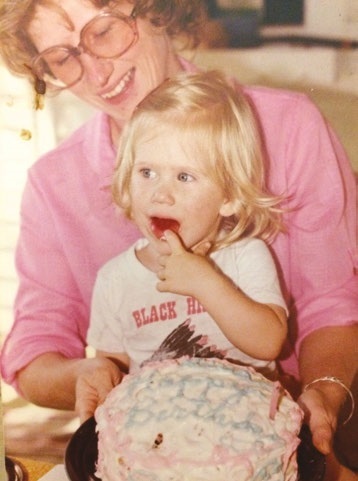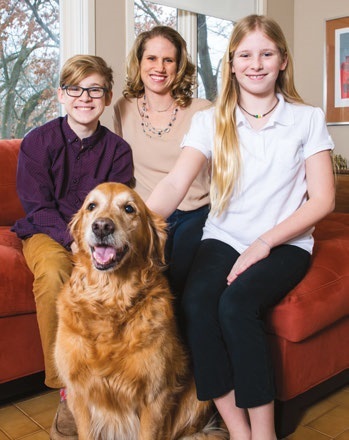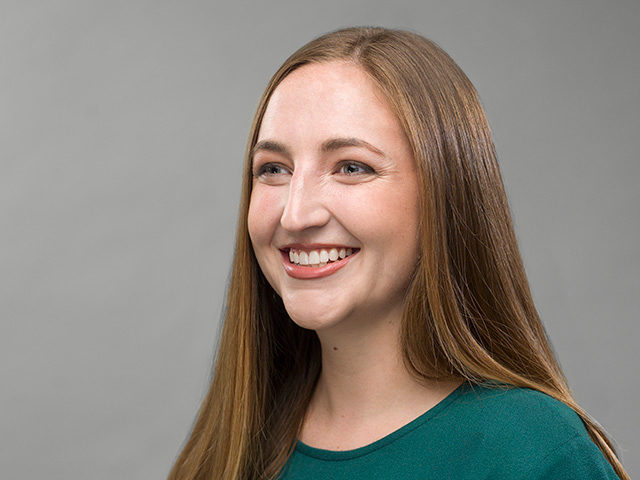Last year in a special edition of Current we featured a story from Lisa Rose, a friend of Grand Rapids Community Foundation. Her story below reminds all of us that estate planning and planned giving is an act of love for your family and your community:

Lisa Rose and her mom Deborah Perkins Rose, 1980.
January 29, 2017. Sitting at my desk, I look at my calendar and see the reminder to contact my attorney. Correction, my mother’s attorney.
I assemble a few papers and make my phone call. I make more notes in my planner: remember to contact mother’s CPA to schedule her taxes.
Rewind seven months. I sit at my mother’s desk. It’s only two days after her death, and I’m rustling through the secretary’s drawers, looking for her keys to the lock box. I phone my brother to stop by the bank to open up her safety deposit box. Maybe we will find her will.
Three days ensue, riffling through my mother’s files, still hoping to uncover a copy of a will or estate plan. I want something that would indicate not only her burial wishes, but a key document that would dictate how her assets would be handled—everything from her checking account to the sale of her home.
I found many oddities along the journey to locate that will. I found that my mother organized canned goods by color and saved all of our childhood birthday cards from relatives. I came across a mysterious love letter and stack of Iraqi money. But no will.
It is very interesting how children can be so very different from their parents. I see that in my children, and I can see it in me. My mother was whimsical, unorganized, creative. I need structure and organization.
After a divorce several years ago and after my father’s death, one of the first things I did was rewrite my will, name executors of my estate and establish provisions that included a trust for my children.
At that time, I also named Grand Rapids Community Foundation as a beneficiary of my estate and created a fund there in my name.
 Lisa and her children Jacob and Emma Starner with dog, Rosie.
Lisa and her children Jacob and Emma Starner with dog, Rosie.
The legacy portion of this process, for me, was important, but not nearly as important as the need to have all the i’s dotted and t’s crossed for my children.
At the time of my death, it will be relatively seamless to follow through on my burial and to liquidate and distribute assets from the estate.
As for my mother’s estate, the absence of a will meant probate court, the standard process for all estates that do not have proper provisions. Probate becomes a burden for those also trying to grieve the loss of a loved one, not to mention the added expense of legal and accounting fees.
I encourage all my friends and relatives, with or without children, to consider creating an estate plan. Simple planning up front, albeit with difficult conversations, will allow your loved ones to focus on the good memories of you after your death. Rather than the paperwork.
If you have any questions about this article or want to speak with someone at the Community Foundation about making a charitable provision in your estate plan, please don’t hesitate to call a member of our development team at 616.454.1751.
